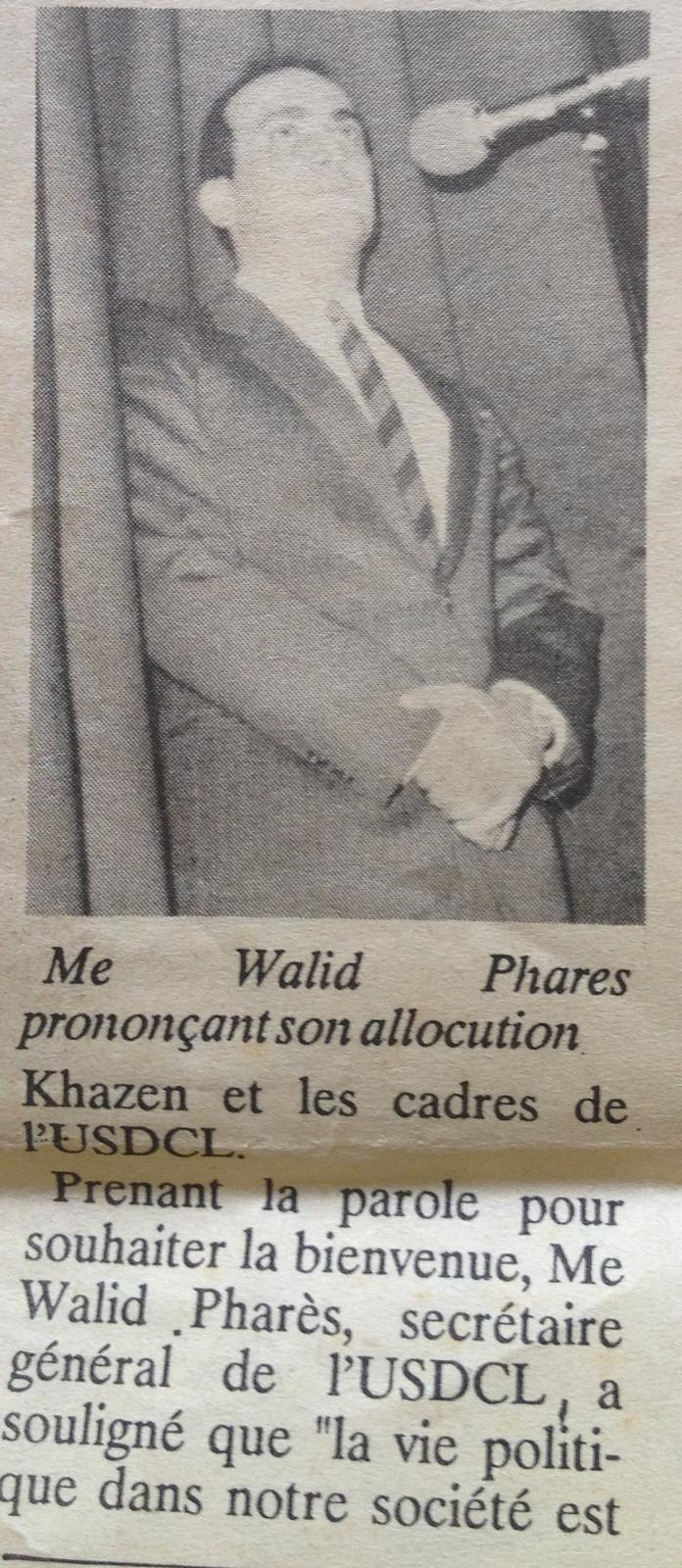Who is Walid Phares?

When I researched and wrote on the political complexities and the chaos of violence that afflicted Lebanon with the outbreak of war in 1975,
I became aware of the biased misrepresentation of things that had dominated the Western media. The fact was that three external forces were behind the collapse of Lebanon: a Syrian military assault, Palestinian warfare, and Iranian intervention. The Lebanese were losing their country to foreign predators, and the essential Christian component of the population – without whom there was no history and future for the country – faced exile or extinction.
 Walid Phares, Lebanese Maronite academic and activist in his younger years, was one of many patriots who joined the struggle to save Lebanon and her destiny.
Walid Phares, Lebanese Maronite academic and activist in his younger years, was one of many patriots who joined the struggle to save Lebanon and her destiny.
Much can be said of the JP article “Who is Walid Phares? by Ben Lynfield from November 16, and none of it favorable. It is mean-spirited, wholly selective in “facts,” smelling of character assassination, judgmentally arrogant, and whitewashing the true culprits in the morass that afflicted Lebanon. Phares understood the stakes, the diabolical actors, and witnessed the havoc on the playing-field.
The Palestinian massacres of Maronites at Damur and Ayshieh in 1976 were ignored in the West. Syrian assassinations and political intimidation of politicians, judges, journalists, and clerics from all denominations, subdued and strangled the voice of many Lebanese; but others – like Abu Arz and Bashir Gemayel – chose the path of resistance.
Walid Phares was not, as Lynfield derisively name-calls him, a warmonger, but a loyal son of his people and country, a scholar and publisher, writing and teaching for national freedom, pluralism and human dignity. Indeed, the liberation of Lebanon from alien warmongers led Phares to appreciate the role Israel, and the West, might play in the complex political equation of that time.
Lynfield haughtily expects Walid Phares to change his views. With Trump’s victory, and Phares slated for a top policy post, that will hardly be necessary or justified.
_____________________
Dr. Mordechai Nisan wrote two books on Lebanon: The Conscience of Lebanon: A Political Biography of Etienne Sakr (Abu-ArzWar and Politics in Lebanon: Unraveling the Enigma.